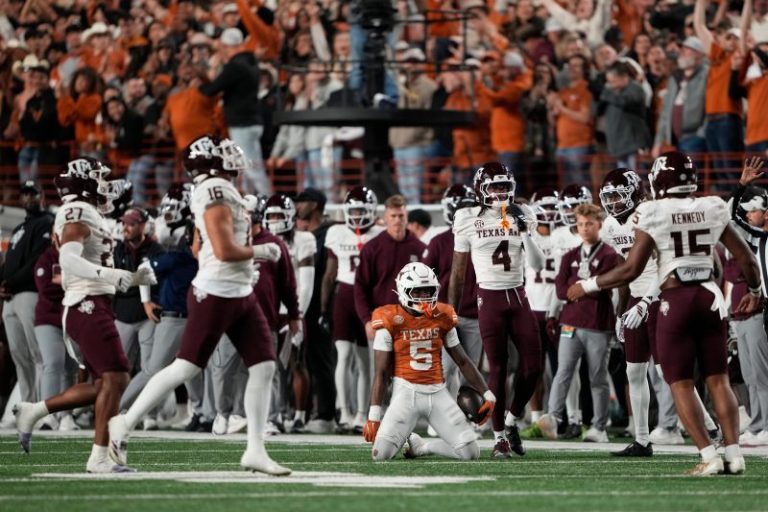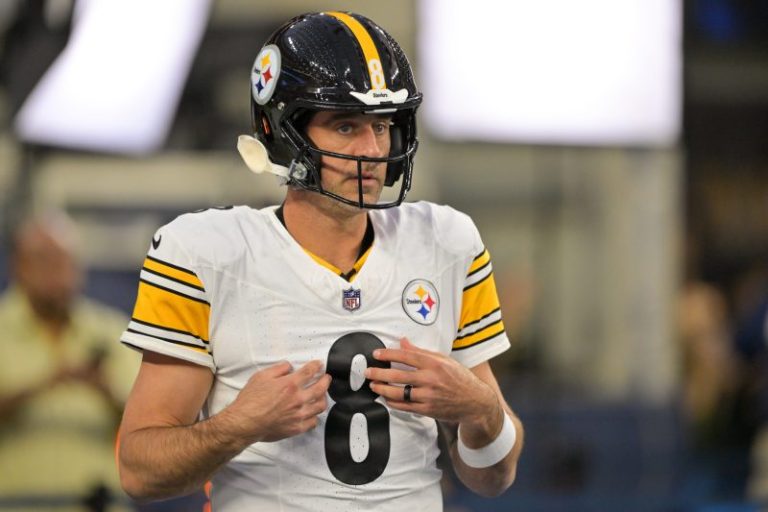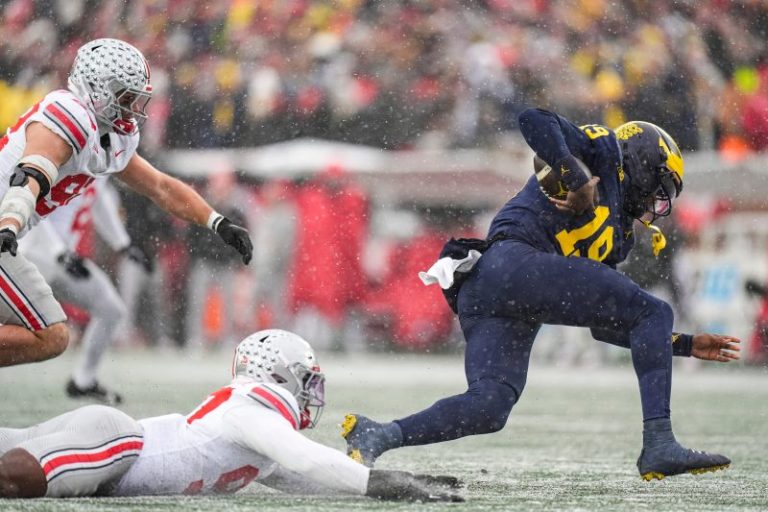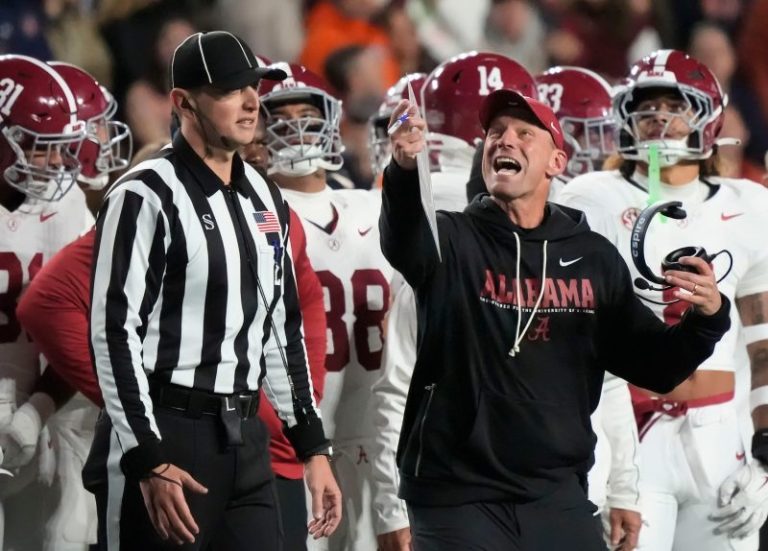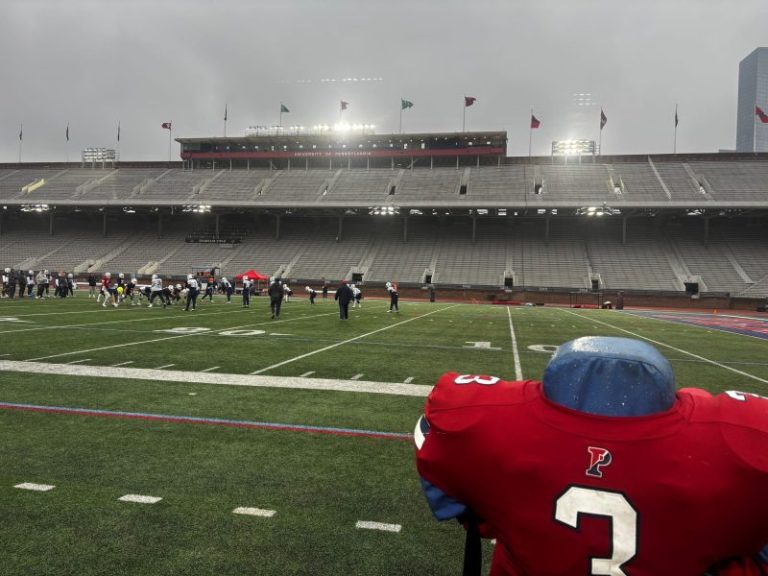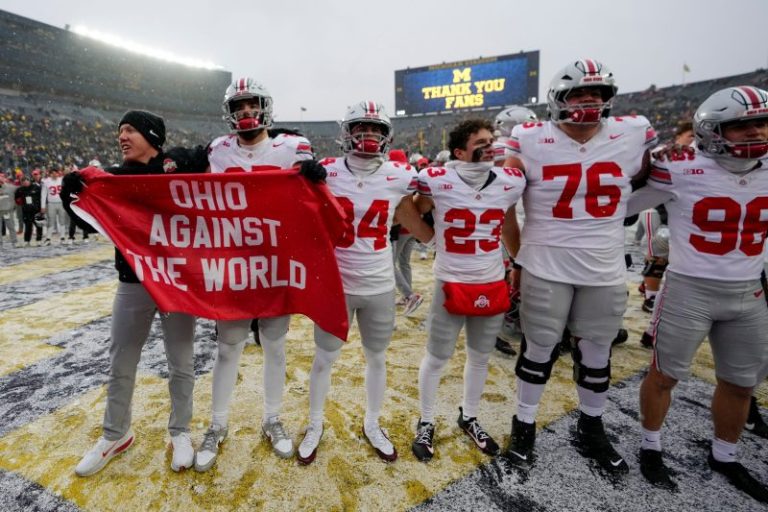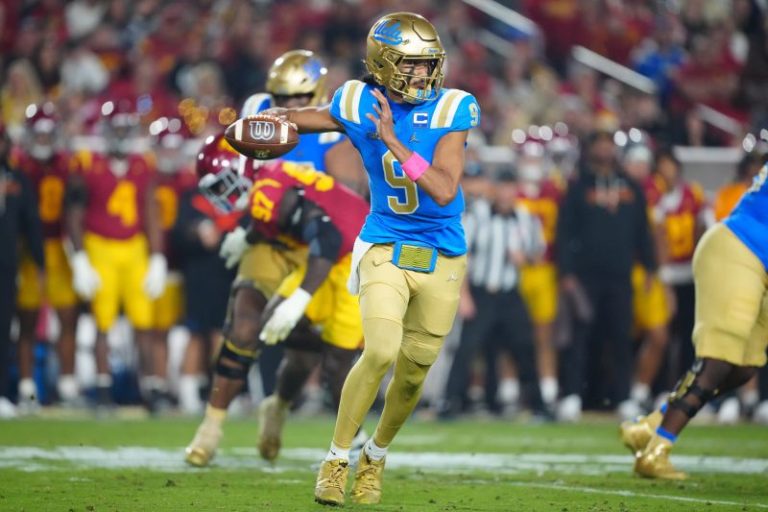Getting recruited: This is Part 2 of a series that looks behind the curtain of college recruiting. USA TODAY Sports was granted behind-the-scenes access by the football staff at the University of Pennsylvania, a Division I program that offers a high academic profile but no Name, Image and Likeness (NIL) money or scholarships. This week: Negotiating the constant change of college sports.
Read Part I: How college recruiting can be like the dating game
PHILADELPHIA — When Jon Dupont was just starting out as a football coach, he had to fend off flying mammals as he ascended the stairs to his attic domicile.
‘I’d have a tennis racket over my head so that the bats didn’t fly down and buzz me,’ he says.
Dupont remembers making $2,500 a year at Worcester (Massachusetts) Polytechnic Institute, but the housing was free (critters included).
It got better when he moved to Trinity College in Hartford, (Connecticut). The school paid for his master’s degree in economics, and he got free housing and meals.
‘Some people aspire to be a college football coach someday,’ says Dupont, who has been on Penn’s football staff since 2006. ‘I thought at first I was gonna be an engineer and then I was gonna work in finance. I’m like, ‘I’ll try that out for a couple years while I try to figure out what I want to be.’
‘My goal was to get my master’s degree because I knew that having an advanced degree was gonna be important. And I knew how volatile being a football coach is.’
Dupont spoke Nov. 19 from his office at Franklin Field. Less than a week later, he and his nine full-time colleague faced an unknown future in their field after head coach Ray Priore stepped down after 38 years on the staff.
Priore’s replacement will have the opportunity to evaluate and retain the staff, but they understand new coaches tend to bring in their own guys.
‘I don’t know what I would do when I grow up,’ Dupont said that day with a smile.
The thrill of playing and coaching sports can be intoxicating. But what we experience away from the field can sometimes make us feel helpless.
There are politics involved from youth to professional sports, and there are unknowns. Who truly knows who you are and what you can do? How can you get your name in front of people who can enhance your experiences and sports career?
USA TODAY Sports offers advice about how young athletes can best present themselves in this world of inevitable uncertainty and change.
Make sure your offer, or opportunity to play at a college or university, is firm
Recruiting is about building relationships. There are recruits in Penn’s expected freshman class next fall whom the current coaches worked to admit.
Other recruits are in midstream, and the coaches, before their fate at the school is determined, will try and keep them in play.
If you are an incoming recruit and the coach who recruited you leaves the school, have a conversation with the athletic department, admissions office and/or new coaching staff. See if you can get something in writing that you will be part of the team when you enroll.
At some point in any recruiting process, where things can change on a dime, you might have to look elsewhere.
‘The problem we have is everyone’s gonna say yes to you until it filters out,’ Bob Benson, Penn’s associate head coach, told me less than two weeks ago, ahead of Penn’s final game. ‘And you can’t really afford to say no. You gotta be very diligent.’
Priore, Penn’s outgoing head coach, said schools initially offer based on talent, but it’s your job to know the difference between offers and committable offers.
He has seen recruits post on social media in the spring of their junior years they have offers from Ivy League schools. He knows, though, that there are rigorous academic hurdles Ivy League recruits must clear and a complicated financial aid eligibility form that prolong the process.
‘What we say is you’d be someone we’d love to have,’ Priore said before he stepped down. ‘We can offer you a spot if you get into school but from a talent standpoint, you’re really talented but there are all these different stages.
‘Everybody can offer anybody. But what are you offering? It’s our evaluation and based upon everything going right, then it could be all great for you. But it’s just the first thing.’
A ‘broken’ system; do you need to pay for a recruiting service?
Under Priore, Penn worked from a list of thousands of kids per high school class, which it eventually whittled down to 20 to 40 on a flow chart.
How do we even get noticed?
Every year, according to Brian Cruver, there’s roughly 4.5 million athletes self-identifying as wanting play their sport in college.
Cruver was a parent wondering that question. He didn’t have an extensive sports background and his son, Carson, wanted to pursue playing football in college.
Cruver is a tech startup executive who help found billion dollar businesses, including a germ-killing robot company called Xenex. His latest venture is called Scorability. He started it with his friend, Brett Andrew, whose daughter, Gella, plays beach volleyball for Florida State. Cruver’s son, Carson, ended up at Florida Atlantic.
Scorability is a centralized database that coaches access that includes athletes’ transcripts, athletic numbers and videos as well as coach and even parent evaluations.
It has initially dipped its feet into football recruiting and plans to expand to women’s volleyball, men’s and women’s soccer, men’s and women’s basketball, baseball and softball in early 2026.
‘I’m good at building great software product teams that can take those products to market,’ Cruver tells USA TODAY Sports. ‘All the lessons I learned along the way with these tech startups, I want to apply to this big, broken thing, which is college sports recruiting.
‘There’s a lot of adjectives. Let’s start with inefficient: Extremely inefficient for everybody involved. No one really likes how it works. They just kind of accept it as how it is. Most parents and athletes don’t know what the process is until it’s over.
‘It was chaos and it was confusing and we never really knew what was going on. And it worked out for (my son). It doesn’t work out for everybody. We were frustrated, but at the same time, we were very involved parents with resources, and I was looking around at these other athletes whose parents are maybe not as involved, and maybe don’t have as many resources and feeling like, ‘OK, we didn’t like this experience, imagine what it’s like for everybody else.’ ‘
Expensive is another adjective. There are websites and/or advisors that charge hundreds, if not thousands of dollars to help get your kid onto a college team. Scorability is free to athletes.
‘Don’t pay for recruiting services,’ says Dupont, Penn’s recruiting coordinator. ‘The recruiting services that parents pay for, these recruiting gurus, when I get messages from them, I want to turn them off. I don’t even know them. I’m talking about individual recruiting advisors. Tons of those people out there are getting paid good money from families to do exactly what they’re doing. But their interest is not the kids’ interest. It’s their own interest to continue to get paid. So they’ll go out there and they’ll sell anybody they can possibly sell.
‘And then they know better than you. And I’ve had that before, too, guys getting offended with our evaluation. I would rather the high school coach reach out to me. I trust him. And I have a relationship with him and I go visit him.’
Penn’s staff has used Scorability, which has, among other clients, TCU, Miami (Fla.), Oklahoma State, SMU as well as a junior colleges and Division II and III schools.
The better student you are, the better chance you have of playing college sports. But coaches separate you based on your athletic numbers, also known as your metrics: Not only your height and weight, but also your speed, strength and jumping ability. If you’re a baseball player, it’s velocity as a pitcher and exit velocity as hitter; a volleyball player, it’s how high you touch.
‘I think all parents exaggerate,’ says Benson, also Penn’s defensive coordinator who has been a head or assistant college coach for four decades. ‘That’s why you have to get back to metrics.’
Make sure you’re realistic about your chances at a school and have the metrics to qualify
Scan the online rosters of schools for which you’re interested in playing and look at heights and weights of their players. Many coaches will want to see you in person at the camps they run for high school prospects. Find out the specific metric numbers they’re looking for you to hit.
Coaches also want your numbers to be verified. If your son is a baseball player, for example, and plays in Perfect Game or Prep Baseball Report tournaments, his metrics will be recorded and stored on profile pages through those organizations.
One of Scorability’s benefits is it collects and compiles your metrics from college camps you attend. Coaches who subscribe to Scorability can see data from thousands of camps (and showcases) for their sport. These are athletes who want to be recruited and are choosing to share the data with college programs.
Scorability has recently acquired Ryzer, which puts on showcase camps for a number of sports, meaning all of your information from Ryzer camps (and other camp partners) will be stored in Scorability.
‘A lot of kids are magically two inches taller than they really are,’ says Cruver, Scorability’s CEO. ‘Think about how much traveling all these coaches are doing around the country, only to find out that a 6-4 kid is really 6-2.
‘We do a good job of getting verified measurables, visual content, photos and videos. So in the case of football, it’s not just their 40 (-yard dash) time, it’s a verified 40 time with a video of the 40 being run, with a mentality assessment and a coach evaluation on that kid. So you get to know, he runs a 4.3, great. But what’s he going to be like in the locker room?’
How do you present yourself to a school in the best possible way?
Penn has paid for Scorability and other services like Catapult, Verified Athletics and The UCReport. Penn’s coaches receive numerous emails per day from such services with names of potential players.
It’s the job of coaches at schools like Penn without recruiting departments to scour the data.
As a recruit, you need ways to jump off the page apart from your numbers as coaches sort you by, say, class, region of the country, GPA or SAT score.
‘We really value when parents are honest about (how) these are the strengths of my son, these are the weaknesses, these are the areas that I’d like to see him grow, this is the type of program that I think he would thrive in and why,’ says Jerheme Urban, a former NFL wide receiver and the head football coach at Division III Trinity University, which uses Scorability. ‘The more information that we can gather on the front end of things outside of just the metrics really allows us to be more intentional.
‘I’m not gonna a disqualify kid from our recruitment process if the parents talk about the areas of growth that their kid needs. I think that’s self-aware. We’ve seen some really good parent evals come in as well in terms of how they’ve helped him grow in certain areas.’
Cruver says one of the goals of Scorability is to help kids stand out for their human qualities as much as their metrics.
‘These coaches will watch thousands of hours of highlights and video,’ he says. ‘And they get a good sense of athleticism from that. But they may narrow it down to 20 kids who athletically are about the same. And then what every coach tells us in every sport, whether it’s softball or golf or football, what it really comes down to is who do they want in their locker room? Who do they want in their weight room? Who’s gonna be loyal to the team? Who’s gonna be coachable? Who’s gonna be a good teammate? We had a golf coach the other day tell us, ‘When I recruit, I’m thinking about who do I want to ride in a van with for six hours?’ ‘
Playing a collegiate sport can be like a full-time job. Coaches want to know if you are willing to wake up at 5:30 every morning for a practice or a workout. Do you want to hit the weight room six times a week? Can you squeeze in studying and sleep, too?
I was a collegiate rower for three years. I decided to stop so I could stay up late to study, socialize with friends and have more time to pursue a career path my senior year. In other words, to have a typical college experience.
Dupont, Penn’s recruiting coordinator, played Division III baseball and football at St. Lawrence University in Canton, New York. It led him to coaching.
He wasn’t making full-time money with benefits until he was 30 and, yet, he said in nearly the same breath, he can’t imagine doing anything else.
‘You’re just constantly locked into something, whether it’s the football season, recruiting, offseason workout programs with your players,’ he said. ‘But I love it.’
Part III (final installment) coming next weekend:Using sports to find a life path for success.
Borelli, aka Coach Steve, has been an editor and writer with USA TODAY since 1999. He spent 10 years coaching his two sons’ baseball and basketball teams. He and his wife, Colleen, are now sports parents for two high schoolers. His Coach Steve column is posted weekly. For his past columns, click here.
This post appeared first on USA TODAY


